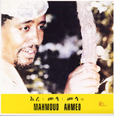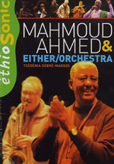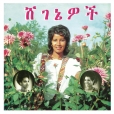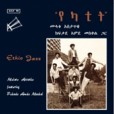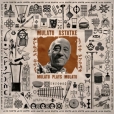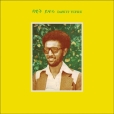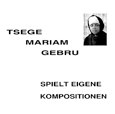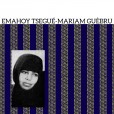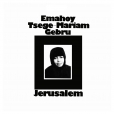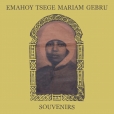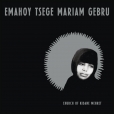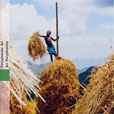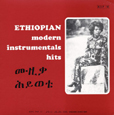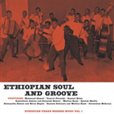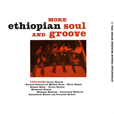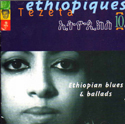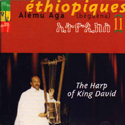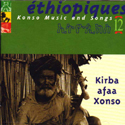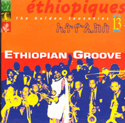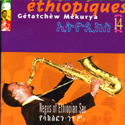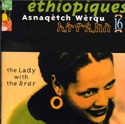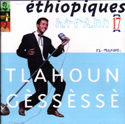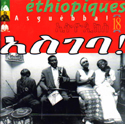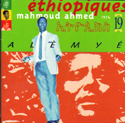Your basket is empty

The great man meeting up with the American big-band, the Either/Orchestra — rehearsals, interviews, and finally a joint performance at the 2006 Banlieues Bleues Festival.
‘Dizzying close harmonies and indestructible grooves on this lost classic from Ethiopia’s Golden Age.
‘Raised in the bustling cosmopolitan milieu of late-empire Addis Ababa, two young women released one single and a full-length LP in 1976, before disappearing from the music business entirely. Originally released on Kaifa, the label responsible for some of the heaviest and funkiest Ethiopian records of all time, Beauties was a hit, selling out in a few days. But it came out at the beginning of two decades of darkness and oppression in Ethiopia, and this is the first full reissue of this overlooked classic.
‘Beauties is at once totally unique and an amalgamation of all that came before it during Ethiopia’s explosive two decades of creativity in the 60s and 70s. Fans of Ethio-jazz will hear Mulatu in the dark, minor-key piano runs, turning in on themselves on songs like Amlak Abet Abet and Metche Neow. Interlocking percussion and rock steady basslines are a signature of the Army Band, which also backed greats like Tlahoun Gesesse and Mahmoud Ahmed. Arranger Teshome Sisay is also an incredible flutist, playing with both sensitivity and swagger on tracks like the majestic Ayinouma.
‘But the vocals are the most stunning part. Aselefech and Getenesh met at the legendary Hager Fikir Theatre in Addis, where centuries-old Ethiopian culture combined with the modern music of the capital’s elite. Trained in traditional music, their dual vocals lead in extremely close harmony, intertwined and infinitely creative in their phrasing.
‘By the time this record was released, the Derg Regime was imposing strict crackdowns on music and artistic expression. Targeted as allies of the deposed Emperor Haille Selassie, the artists (and most musicians) had to keep a low profile. This is one of the last great releases of the Ethiopian Golden Era.’
Utterly beautiful solo-piano explorations in African folk, spiritual meditation, Satie-esque classicism and Tatum-esque jazz, by this Ethiopian nun, making her 1963 LP debut, recorded in Germany. Stunning; highly recommended.
‘Gebru is a true original,’ says the label. ‘Her playing is somewhere between Satie, Debussy, the liturgical music of the Coptic Ethiopian Church, and Ethiopian traditional music. It is some of the most moving piano music you will ever hear! All original compositions available for the first time on vinyl beyond the original early 1960s editions, which are completely impossible to find. Old school tip-on cover with gold foil printing. A must-have masterpiece for anyone who needs some spiritual comfort.’
‘Emahoy recorded these songs direct to cassette tape in her family’s home in Addis Ababa in the late 70s. She carried the master tapes with her when she entered permanent exile in Jerusalem in 1985. They stayed in her tiny cell at the Church of Kidane Mehret until her passing, in March 2023, aged 99.
‘I was on my way to see Emahoy and talk about the release of these songs when she passed away. While helping her family clear and pack her belongings, we found the original master tapes, from which this album is produced. Intimate, close, home recordings. You can hear Emahoy’s finger pressing down the stop button, the creak of her piano bench, birds out the window.
‘These are songs of mourning and exile. The Ethiopian Revolution of 1974 had changed her country so radically that Emahoy sang of missing home even though she was still physically in the country.
‘Emahoy wanted badly for these songs to be heard. She was proud of them, and even produced a tiny run of private press CDs sold at the gift shop of the monastery in 2013. But her family and those closest to her advised her against the release, worried about the intense backlash she’d receive for singing as a nun in the conservative Orthodox church.
‘Finally, these recordings get the release they deserve. We hope to do justice to the music and Emahoy’s legacy with this release — packaged in a reflective gold sleeve, with a sixteen-page booklet featuring lyric translations and photos of Emahoy’s life in the monastery in Jerusalem.’
(Cyrus, Mississippi Records).
Her 1972 private-press LP, plus two unreleased piano recordings, mapping out a deeply personal take on Ethiopian Church Music.
Here is Emahoy’s most directly sacred and spiritual music-making — and some of her most moving — self-recorded in churches across Jerusalem, on piano, harmonium, and pipe organ.
With extensive biographical notes by Thomas Feng. Beautifully remastered. Old school tip-on jacket with silver-foil stamping. Black or clear vinyl.
Dramatic, intricate singing from South West Ethiopia — non-verbal, the voice turned inside out, used like an instrument — sometimes with lyre, riffing till death do us part, clapping, flutes from space, bells, and other accompaniments.
Vinyl selections from CD Volumes 1, 4 and 8… featuring Mulatu Astatke.
Music from the Amha label run by Amha Ashete, driving force of modern Ethiopian music.
With virtuoso self-accompaniment on the beguena — an oversize ten-string lyre, the oldest instrument played in Ethiopia: religious songs as well as traditional fables, folk tales and poems.
The music of the Konso — a tribe from the Sudanese border country — to do with daily chores, sacred or ritual matters, and entertainment. Flutes, bells, harps, horns, xylophones, drums.
Another survey of the golden age of modern Ethiopian dance music — bound up with the production of vinyl records — between 1969 and 1978.
Starting in the early fifties, long before Ayler and Ornette, Mekurya’s stroke of genius was to give improvisatory voice on his saxophone to the ‘shellela’ singing style — epic, harsh, war-like.
Self-taught on krar-lyre, favourite instrument of the azmari; and — alternately poignant and sarcastic — the last great singer, story-teller and free-thinker to carry on their tradition of poetic cut-and-thrust.
For Ethiopians, their greatest singer of all time; with music arranged by Mulatu Astatqe for the Army Band, the Exhibition Band, the Police Orchestra, the Bodyguard Band.
The sequel to Volume 2 in this series, and featuring many of the same singers, accompanied by the messenqo (one-string fiddle), the krar lyre, the kebero drum and the accordion.
Alemye, from 1974.

